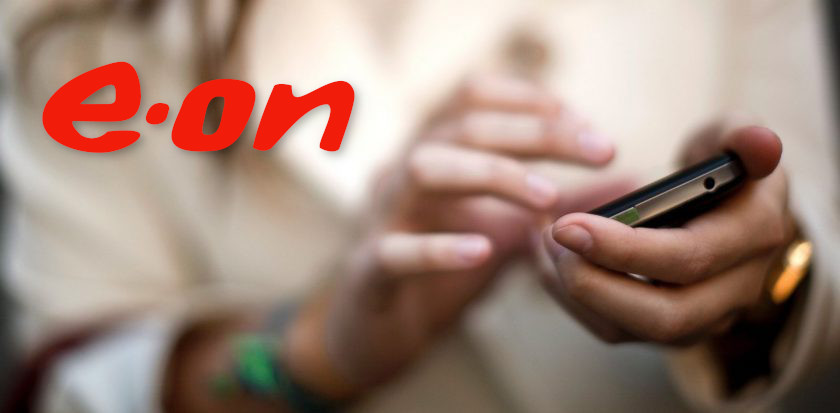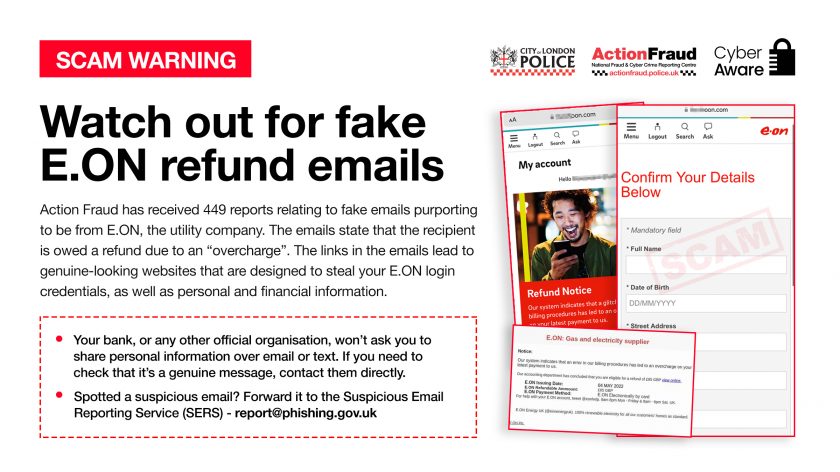Beware of fake E.ON refund emails, warns Action Fraud

Action Fraud – the UK’s national reporting centre for fraud and cybercrime – has said scammers are impersonating Eon in an attempt to steal the recipient’s money and financial details.
The UK’s energy crisis has seen household utility bills rocket following the price cap increase this April, scammers are seeing this as an opportunity to fleece unsuspecting residents out of their hard-earned cash.
Action Fraud said today it has received 449 relating to fake emails – known as phishing – purporting to come from E.ON.
The emails state that the recipient is owed an £85 refund due to an ‘overcharge’.
Action Fraud has said the links to the emails lead to a ‘genuine-looking website’ but they are designed to steal a personal details.

Phishing is a method used by scammers, using fake emails or web links which look trustworthy and familiar, to gain access to sensitive information such as passwords and bank details or to infect your device with malware.
Phishing emails are a very common type of cyber attack and because they’re made to look like they’re from an official source, they’re easy to fall victim of.
They could be from a business you’re a customer of – your gas and electricity supplier, for example – asking you to manage your account or pay a bill.
If you’ve had a suspicious email from someone claiming to be from E.ON, forward it to [email protected] for their cyber security team to investigate, if you’re a customer or not, and then delete it immediately.
Email safety tips
Spotted something? Got a story? Email: [email protected]
Latest News
